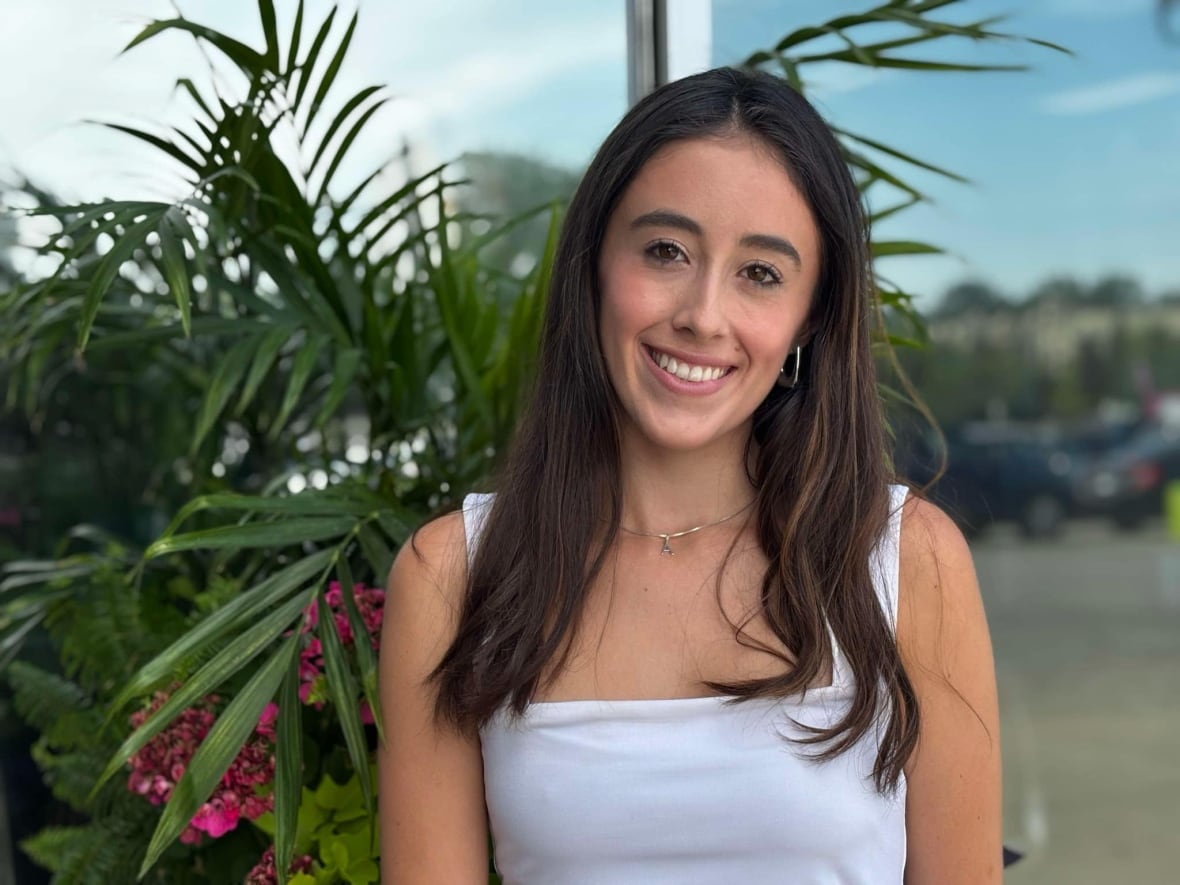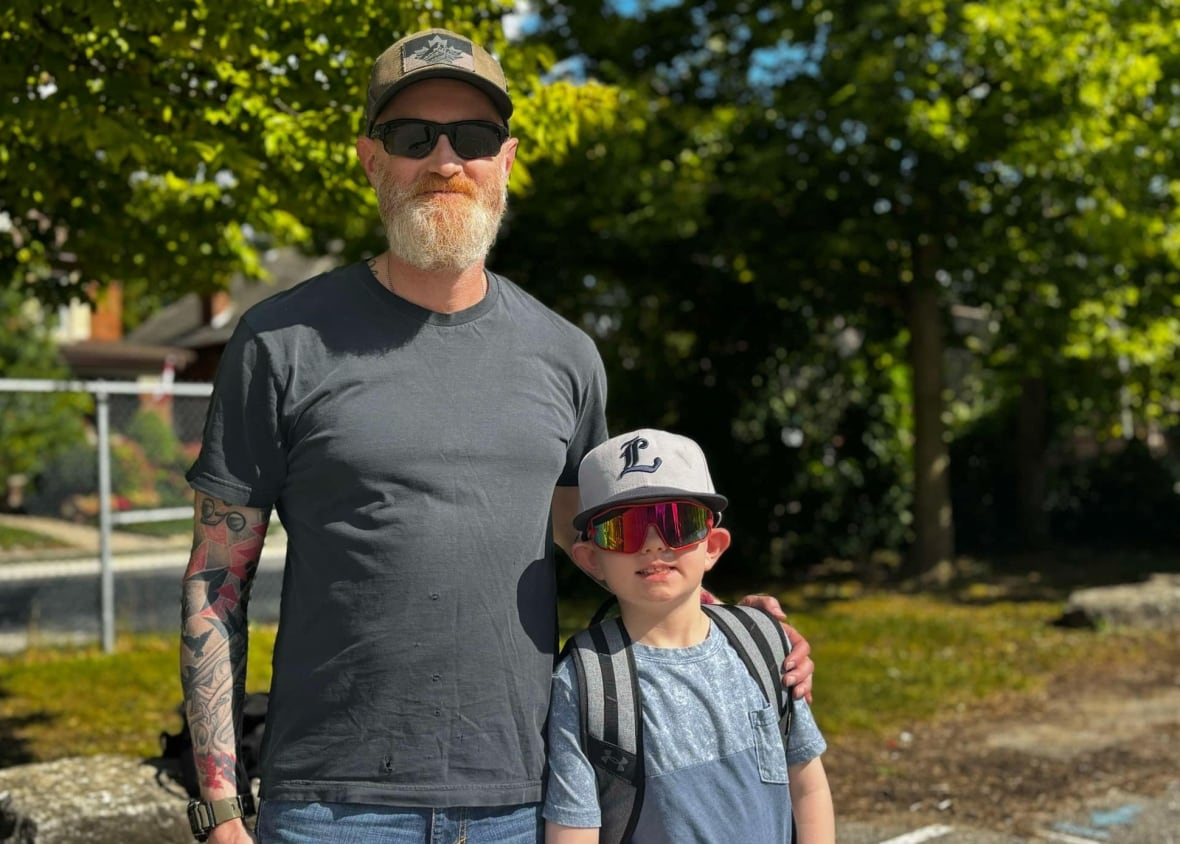Study warns about dangers of 'kidfluencers.' Kids and content creators have a different opinion

Thomas Fitzgerald is only nine years old and already knows what he wants to do when he grows up, and he doesn't want to wait that long.
His dream job? Becoming a YouTuber.
"It's because they make cool content," Thomas said.
Other London, Ont., elementary school students told CBC News that they and their friends aspire to be child YouTubers, and that some of their classmates already post videos online. However, a recent study co-authored by a Western University professor found there is a dark side to this trendy career choice.
"It starts out really benign. It's about getting a following and interacting, and you generally see these things tend to be very organic," said Daniel Clark, a professor of entrepreneurship at Western's Ivey Business School. "And then it goes and builds and builds until effectively, they're a corporation."

A "kidfluencer," a combination of the words kid and influencer, is a child who builds a social media following by expressing ideas and getting some sort of audience response, Clark explained on CBC's London Morning.
Kidfluencers post videos on platforms like YouTube and TikTok, sharing anything from toy reviews to scripted skits. In some cases, kids are only part of an account's influencer make up, with "family influencer" and "mommy vlogger" channels sharing the lives of both parents and children in group videos.
LISTEN: Kidfluencers are trending and making big money doing it:
Annie Gasca is a London-based family influencer with over 112,000 followers on TikTok. Her content focuses on her life as a Canadian immigrant and affordable family activities in southwestern Ontario, with many of her videos featuring her one-year-old daughter.
"This is my life right now. I just had a baby, so every time I go somewhere I take her," Gasca said.
No matter if the whole family or just children are the stars of the videos, Clark's study found that parents were always the ones in control of content and cash.
"This concept isn't new. We've seen it with child actors for a hundred years," Clark said. "But, that was always kids being exploited by big corporations and their parents having a weird intermediate relationship. Now, these kids work for their parents."
'Momagers' at workClark said being a kidfluencer is real work, with many young creators and their parents spending several hours a day recording and editing videos, then monetizing them for profit.
"Their parents bring them home from school … and they say, 'Now it's time to go to work,'" Clark said. "Their agency and their sense of self-control are completely being usurped by their parents."
Gasca said filming videos does not usually take away from her daughter's everyday routine; the family already goes to local festivals and restaurants, but now she films them.

"One of the reasons why I started creating content is because I feel like TikTok and Instagram are like my album online," Gasca said. "To me, it's just about recording those memories and being able to show it to people."
As her daughter grows up, though, Gasca said the goal is for her daughter to have a bigger role in social media content.
"That's the idea. Of course, if she doesn't like it, then I will stop doing it with her," she said.
Gasca said she has read criticisms about famous family influencers, but said those critiques often refuse to consider a family's dynamic.
"For me, I want to take [my daughter] to places she will enjoy. I'm seeing it as 'let's go have fun,' and I'm actually the one making the content. I don't focus in much on her," she said.
Concerns for young viewersClark said he isn't just concerned about the kids in front of the camera, but also the children watching them.
"I do very much worry about the kids watching it because they want to emulate this behaviour, they want to be famous, they want to have people thinking they're cool," Clark said, adding that his own 6-year-old daughter wants to be an influencer.

Thomas watches gaming YouTubers who record themselves playing Minecraft and Roblox, as well as family influencers who travel and do trending challenges.
"At first, it was hard to grasp, but things are different now," Thomas' dad Ryan Fitzgerald said.
Other parents who spoke to CBC News said their kids also watch and want to be kidfluencers, but had mixed opinions on the career choice. Some said they worry about their child's safety, future regrets about their digital footprint, and the ability to just "be kids."
However, Fitzgerald said he'll support Thomas if he really wants to be a kidfluencer.
"He's nine now, and I think he's smart enough to make some content. He's goofed around a little bit with our laptop, making videos with Hot Wheels, and he's got little stories, so I know he has a good imagination," Fitzgerald said. "I'm willing to let him try it out."
cbc.ca





